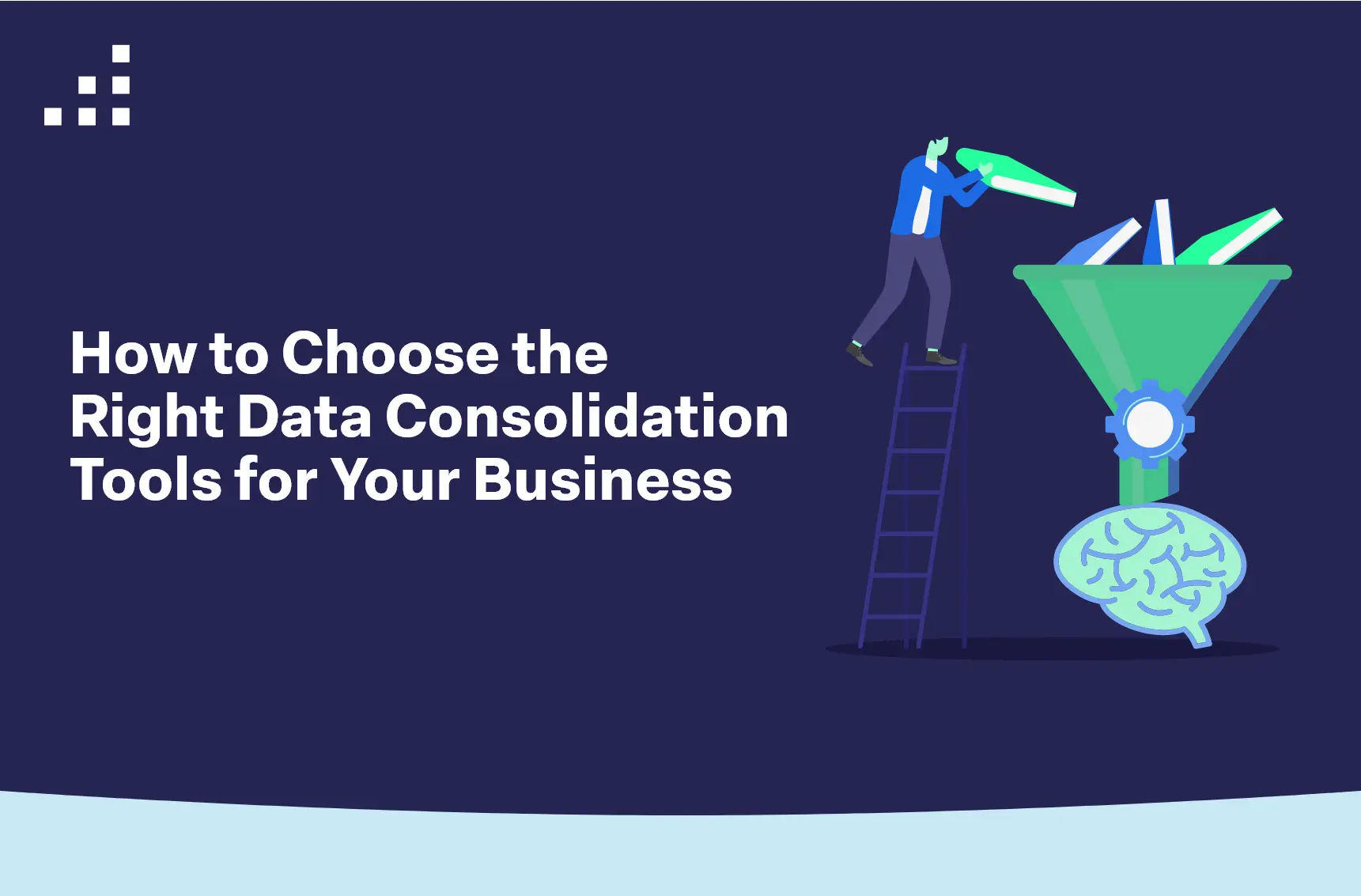Business data is spread across CRMs, ERPs, spreadsheets, and cloud platforms—making alignment and accuracy a constant struggle. The right data consolidation tools eliminate silos, unify information, and create a reliable foundation for decision-making.
But not all tools deliver. Success depends on finding a platform that integrates with your systems, scales with your growth, and turns data into actionable insights.
Here’s what to evaluate when choosing a data consolidation tool—and why so many teams trust BUCS Analytics.
In this article, we’ll explore:
5 Tips for Choosing the Right Data Consolidation Tool
Why BUCS Analytics is a Leading Choice
Final Thoughts on Data Consolidation Tools
Tips for Choosing Data Consolidation Tools
1
Identify Your Key Data Sources and Pain Points
Before choosing a tool, get clear on the types of data you need to consolidate and where they live:
- Sales & CRM platforms (like Salesforce or HubSpot)
- Accounting & ERP systems (QuickBooks, NetSuite, etc.)
- Operational tools (inventory management, logistics platforms)
- Manual spreadsheets stored locally or in the cloud
Pain points to note:
- Are your teams duplicating work?
- Are reports inconsistent across departments?
- Are decisions being delayed due to slow data compilation?
By defining the scope of your data environment, you’ll be better equipped to evaluate consolidation tools that can handle it.
2
Look for Seamless Integration Capabilities
The best data consolidation tools integrate smoothly with your existing tech stack. Choose a solution that:
- Supports pre-built connectors for your key platforms
- Allows custom API integrations if needed
- Handles both cloud and on-premise systems
- Can consolidate structured and unstructured data
The fewer the workarounds, the faster your team can start using consolidated data effectively.
3
Prioritize Data Accuracy and Automation
Data is only useful if the result is accurate and up to date. Look for data consolidation tools that include:
- Automated data syncing
- Cleansing and deduplication
- Data validation rules
- Real-time updates or scheduled refreshes
Automation not only saves time but ensures you're making decisions with the most current and consistent information available.
4
Choose Scalable and Secure Architecture
As your business grows, your data environment will too. The right tool should scale with you without compromising performance or security.
Key considerations:
- Can it handle multi-entity environments or multiple business units?
- Is it compliant with relevant data standards (GDPR, SOC2, HIPAA)?
- Are user permissions and role-based access configurable?
A secure, scalable platform protects your data—and your business reputation.
5
Prioritize User Experience and Reporting Capabilities
Your finance, ops, and leadership teams need intuitive access to consolidated data. Choose a platform that includes:
- Real-time analytics
- Customizable reporting and visualization tools
- Drill-down and filter functionality
- Mobile and remote access support
If your team can’t easily interpret or use the data, the tool won’t deliver real value.
Why BUCS Analytics Is a Leading Choice for Data Consolidation Tool
BUCS Analytics is purpose-built for businesses that need more from their data. Whether you’re working across multiple systems or trying to eliminate manual reporting processes, BUCS helps bring it all together—clearly, securely, and in real time.
Seamless System Integration
BUCS connects to major ERPs, CRMs, and financial platforms—removing the hassle of switching tools or rebuilding workflows.
Built-in Automation
With automated data mapping, cleansing, and updates, BUCS drastically reduces manual labor and improves data trust.
Real-Time Analysis for Decision Makers
Turn raw data into powerful visualizations tailored to your business goals.
Enterprise-Grade Security
From audit trails to multi-level permissions, BUCS keeps your data safe and compliant.
Final Thoughts
The right data consolidation tools do more than centralize information—they streamline operations, reduce errors, and empower better decisions across your business. By focusing on integration, automation, scalability, and usability, you’ll be equipped to choose a tool that delivers long-term value.
And with BUCS Analytics, you won’t just consolidate data—you’ll unlock its full potential.
Ready to see how BUCS can become your business’s data backbone? Request a demo today.
